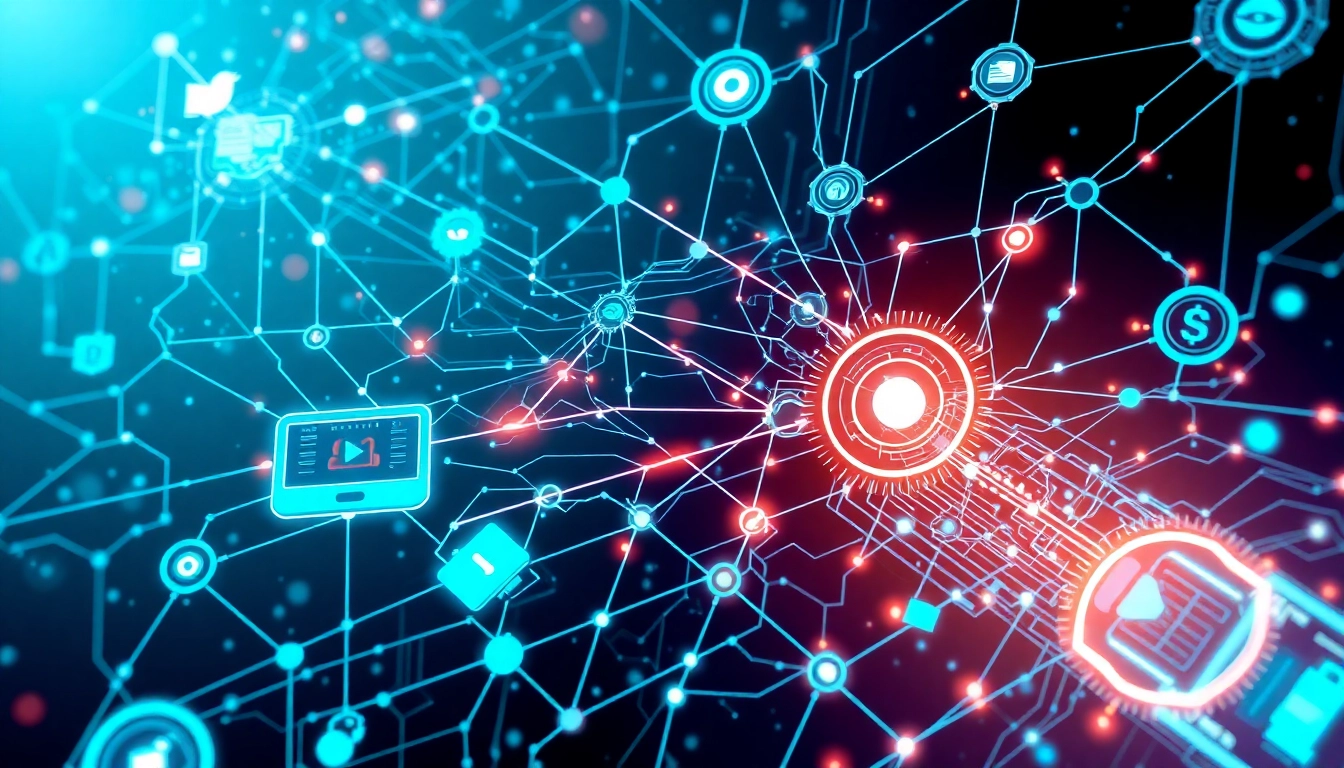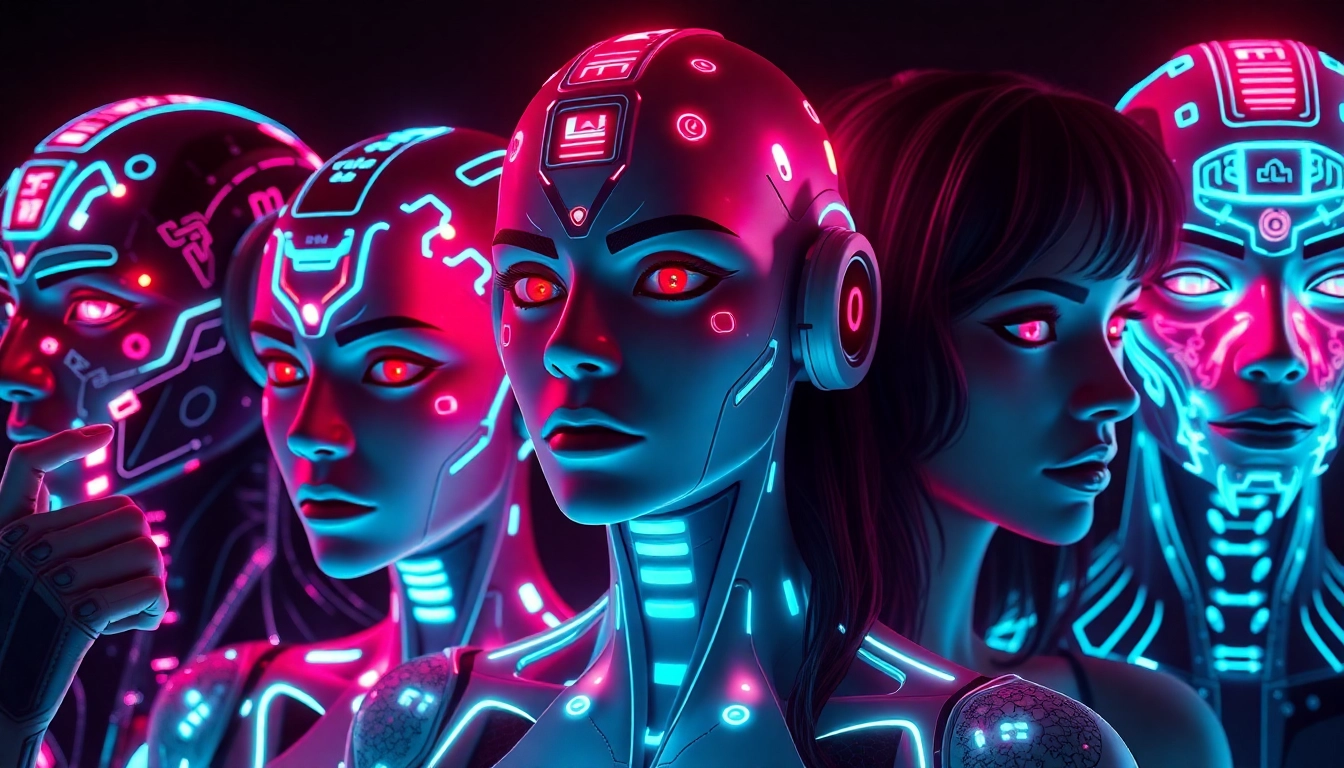In today’s rapidly evolving world, technology stands at the forefront of innovation, transforming how we live, work, and connect. From ancient tools to cutting-edge artificial intelligence, understanding the breadth and depth of technology is essential for grasping its impact on our society and future. Whether you’re a business leader, a student, or simply curious about what’s next, this comprehensive guide explores the history, types, trends, and future implications of technology—equipping you with the knowledge to navigate this dynamic landscape.
What Is Technology? A Complete Definition and Overview
Definition of Technology
Technology refers to the collection of tools, systems, and processes developed by humans to solve problems, improve efficiency, and enhance quality of life. It encompasses both tangible items like machinery and hardware, as well as intangible elements such as software, algorithms, and methodologies. Essentially, technology is the practical application of scientific knowledge to meet human needs.
Historical Evolution of Technology
The history of technology dates back to early human civilizations, where simple tools like stone knives and fire-making methods laid the foundation. The Agricultural Revolution introduced plows and irrigation systems, revolutionizing food production. The Industrial Revolution of the 18th and 19th centuries marked a major turning point with the advent of mechanization, steam engines, and mass production. In the 20th century, digital technology emerged, leading to computers, the internet, and mobile devices. Today, we stand on the brink of an era defined by artificial intelligence, IoT devices, and emerging technologies that continue to redefine possibilities.
Key Components of Modern Technology
- Hardware: Physical devices such as computers, smartphones, and IoT gadgets.
- Software: Programs, operating systems, and applications that run hardware.
- Networks: Infrastructure enabling data exchange, including the internet and telecommunications.
- Data: Information processed and analyzed to derive insights and inform decisions.
Types of Technology: From Basic to Cutting-Edge
Information and Communication Technology (ICT)
ICT includes all digital tools used for communication, information processing, and data management. Examples are smartphones, cloud computing, and broadband networks. ICT has revolutionized how individuals and organizations connect and collaborate globally.
Biotechnology and Medical Technology
This sector involves manipulating biological systems for health benefits. Innovations include gene editing (CRISPR), telemedicine, and advanced diagnostics, significantly improving healthcare outcomes.
Artificial Intelligence and Robotics
AI involves creating machines capable of performing tasks that typically require human intelligence, such as speech recognition and decision-making. Robotics combines AI with mechanical systems to automate manufacturing, logistics, and even surgical procedures.
Current Trends and Future of Technology
Emerging Technologies in 2024
The year 2024 brings exciting developments, including:
- Artificial Intelligence Advancements: Generative AI models are becoming more sophisticated, impacting sectors from content creation to customer service.
- Internet of Things (IoT) Expansion: More connected devices in homes, cities, and industry to optimize efficiency and sustainability.
- Quantum Computing: Progress in quantum tech promises breakthroughs in cryptography and complex problem-solving.
- Augmented Reality (AR) and Virtual Reality (VR): Enhanced immersive experiences for entertainment, training, and remote collaboration.
- Cybersecurity Innovations: New strategies to combat increasing cyber threats amid rising digital transformation efforts.
Impact of Technology on Society and Economy
Technology continues to reshape societal norms and economic models. Digital transformation accelerates business agility, creates new job categories, and fosters innovation ecosystems. However, it also raises concerns about data privacy, digital divide, and ethical use of AI.
Challenges and Ethical Considerations
- Data Privacy: Ensuring personal information remains secure amid widespread data collection.
- Bias and Fairness in AI: Preventing algorithms from perpetuating discrimination.
- Job Displacement: Preparing the workforce for automation and AI-driven changes.
- Environmental Impact: Developing sustainable tech solutions to minimize ecological footprints.
How Technology Shapes Our Daily Lives
Smart Homes and Wearables
From smart thermostats to health-monitoring wearables, technology enhances convenience and well-being. These devices collect data to optimize energy use and track health metrics, empowering consumers with real-time insights.
Automation in Industries
Manufacturing and logistics benefit from robotics and AI, increasing productivity and safety. Examples include autonomous vehicles, automated warehouses, and predictive maintenance systems.
Education and Remote Work
The proliferation of online learning platforms and remote collaboration tools has transformed education and professional environments, making knowledge more accessible and flexible.
FAQs About Technology
What is the most important technology today?
Artificial intelligence is arguably the most transformative technology, impacting industries from healthcare to finance by enabling automation, predictive analytics, and personalized experiences.
How does technology influence future jobs?
Technology will automate routine tasks, creating new roles in AI development, data analysis, cybersecurity, and digital management. Workers will need to adapt through reskilling and continuous learning.
What are the biggest challenges in technological development?
Major challenges include ensuring cybersecurity, managing ethical dilemmas, addressing digital inequality, and minimizing environmental impacts while fostering innovation.
How can businesses leverage new technologies?
- Assess current needs and identify areas for digital transformation.
- Invest in training and upskilling employees.
- Adopt scalable and flexible tech solutions aligned with strategic goals.
- Prioritize cybersecurity and data privacy measures.
- Stay informed about emerging tech trends and continuously innovate.
What are key ethical concerns with technology?
Key concerns include privacy violations, AI bias, job displacement, and the potential for malicious use of technology. Ethical frameworks and regulations are vital to ensure responsible innovation.
Conclusion: Embracing the Future of Technology
Technology’s relentless evolution will continue to shape every aspect of our lives, society, and economy. Embracing emerging technologies like AI, IoT, and quantum computing offers unparalleled opportunities for growth and innovation. However, it also demands responsible stewardship, ethical considerations, and proactive adaptation. To thrive in this digital age, individuals and organizations must stay informed, agile, and committed to leveraging technology for a better future.
Ready to stay ahead? Explore more insights and updates about the latest tech trends 2024 and how to implement them effectively in your business strategy.


